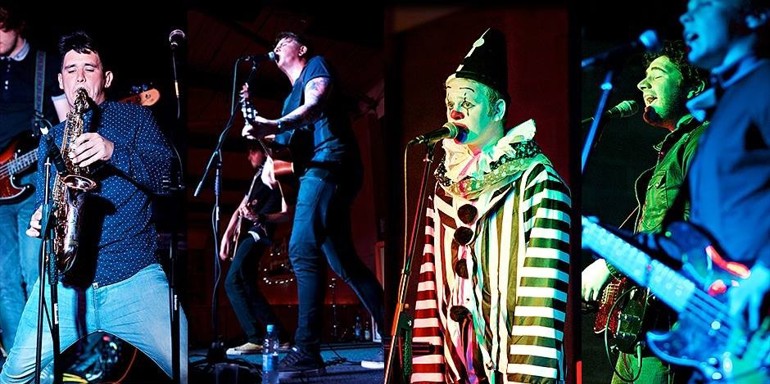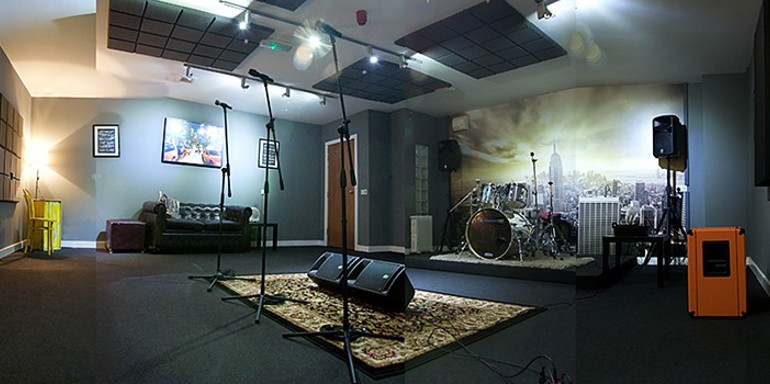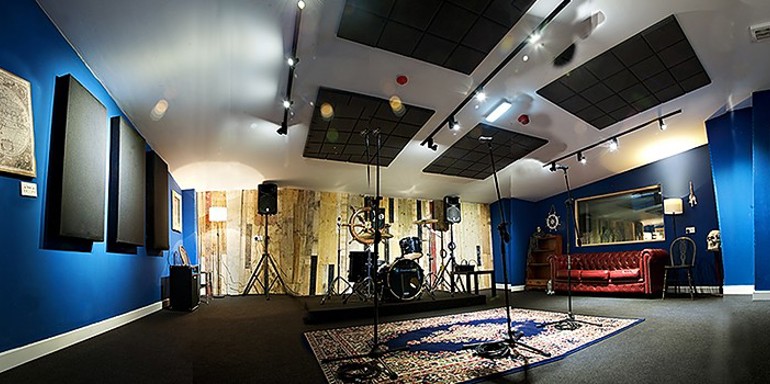In an extract from our Musicians' Survival Guide Vol.2, hear from Thomas Quinn of Blueberry Hill Studios on the origins and development of one of Leeds' premier, professional recording studios and multi-purpose creative spaces.
What is your musical background?
I started out on piano (which I now regret not following up) but settled for some drums and a dabble in playing guitar. None of this started until I was 17. Before then I had no interest in music, and no one in my family before me played an instrument of any sort.
What made you set up such a business?
During college and university I frequented many rehearsal studios whilst playing in bands. The experience of the spaces was always underwhelming and I felt that it must be possible to provide a space for musicians that was much more pleasant to spend time in.
I wrote a business plan, took it to the bank and they agreed to lend me the funds and I went from there. It was a long and arduous process to write a business plan, especially one that would be successful during the recession in 2012. It’s really important to put one together for yourself, especially to acknowledge the strengths and weaknesses of the proposed business. You can’t see into the future or predict whether you will fail or succeed, but at least you’ve set a good foundation to move forward and are aware of the potential risks involved.

Photos: www.blueberryhillstudios.co.uk
How did you find space to set up Blueberry Hill Studios?
This was just a case of driving around the city and trawling through pages and pages of leasehold properties on the internet. It was important to see as many properties as possible, as finding out which properties wouldn’t be suitable was just as important.
Was there a lot of work involved to make the space usable?
Yes, a huge amount. It took us six months of twelve hour days, seven days a week to get the space usable. And this was only for two fully-furnished studios. The other four and the venue were built whilst we were open.
The biggest challenge was managing the project and liaising with various trades to ensure the project ran smoothly. The landlord stopped us building for five weeks at one point due to our use of different materials to what he initially thought would be used.
You think you have every eventuality covered but there will always be something that you are not prepared for. It all adds to the fun!
Do you need a high level of business acumen to get something like Blueberry Hill studios off the ground?
I feel like the answer to this should be yes! However, I had absolutely none. We’ll have been open for five years in a few months so we must be doing something right. I feel like if you give yourself enough time and create a good product, the quality of it will eventually win the day.

Photos: www.blueberryhillstudios.co.uk
Does community play a big role in Blueberry Hill’s success?
Definitely. Repeat business from the local community is an integral part of why we have grown and developed as a business. The community showed their support for us when we flooded in 2015 by organising a fundraiser and helping us with the clean-up operation. We also try to be involved with the community as much as possible by hosting regular gigs, and sponsoring local events.
How often do you have to replace equipment, and does it get tiring staying on top of its maintenance?
The equipment we have the most problems with is drum hardware. People with superhuman strength tighten stands and ruin the threads. We’ve accepted that this is something we have to deal with and try to keep on top of. Having good equipment is part of the service so it’s really important to maintain it. We try to purchase good equipment so it stands the test of time. We have regular repairers onsite or close by and these people are great to know and liaise with.
Do you ever have problems with bands misusing the space or damaging equipment?
We have the odd amp blowing up now again and we have people taking microphones more often than we’d like, but in general people are really great with the space and respect the facilities. I think if a space is nice, the people using it like to keep it that way.
How have you marketed the space?
We initially advertised on social media and in various written media. I’m not sure this worked for us. As the music industry is a real community in itself in Leeds, we hoped that word of mouth would do the trick as we really believed in the service we were providing. Thankfully for us this worked! As previously mentioned I have no business experience and still don’t push the space on anyone in a sales or advertising sense. I just let the space speak for itself and that seems to have set us in good stead so far.

Photos: www.blueberryhillstudios.co.uk
What has been the biggest learning curve?
The biggest learning curve for starting a new business is that you can never have enough time – there will always be something unexpected you have to deal with. Over time I’ve accepted that this is part of the process and enjoy the challenge of overcoming a new or unexpected situation.
Can you list five pieces of advice you would give to someone wanting to start a similar venture?
- If you buy cheap, you buy twice.
- Better to have tried and failed than never to have tried at all.
- Make sure you save up enough finance to get you through your early stages, at least a year. This will be your hardest time as it may take people time to discover your business.
- Don’t take your business for granted, ensure you listen to your customers where possible. Never stand still and try to progress the business within its own means.
- Finally…have fun with it!
Thomas Quinn, Blueberry Hill Studios
www.blueberryhillstudios.co.uk







